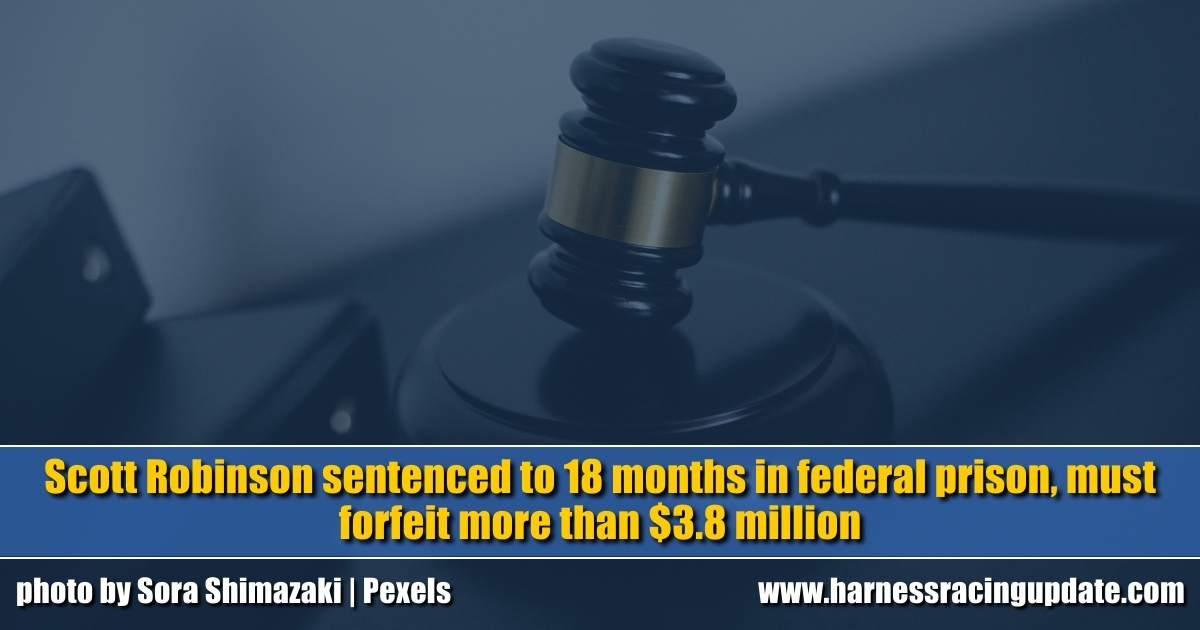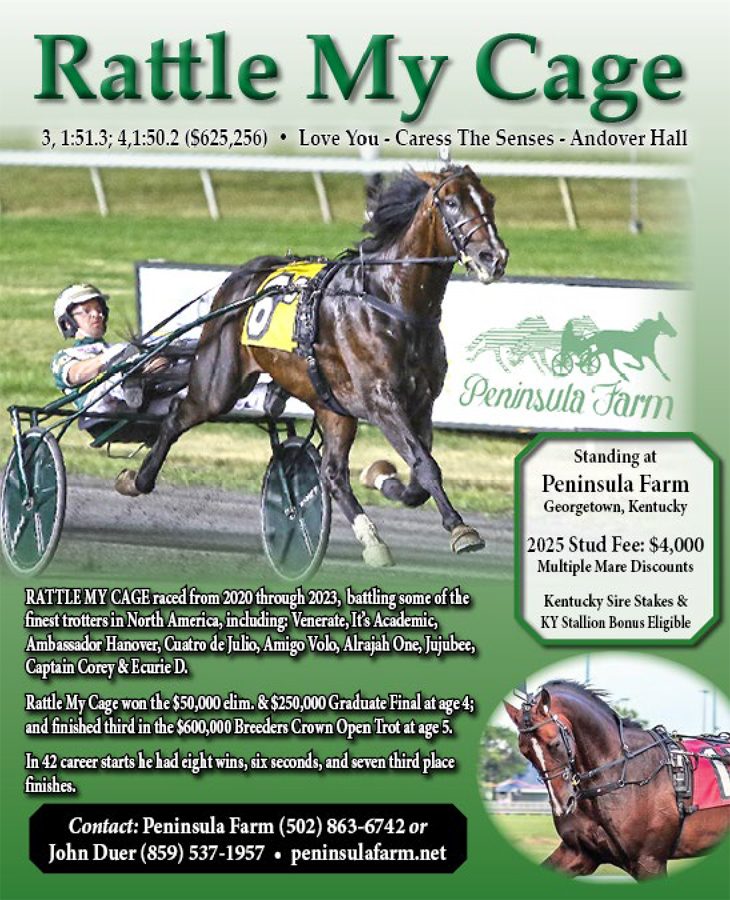
Scott Robinson sentenced to 18 months in federal prison, must forfeit more than $3.8 million
Robinson is the first to be sentenced of the 27 people indicted a year ago for their alleged involvement in a horse doping scheme.
Bill Finley first reported in Thoroughbred Daily News on Tuesday (March 9) (full story here) that Scott Robinson has been handed an 18-month sentence in a federal prison that included three additional years of supervised release and a forfeiture of more than $3.8 million.
Robinson, a drug manufacturer and distributor, pled guilty to one count of drug adulteration and misbranding. The maximum sentence for that offense is five years. The money that he must pay to the government represents the value of the drugs he sold illegally.
Tuesday’s decision by Judge J. Paul Oetken in U.S. District Court in Lower Manhattan, came exactly one year to the day after 27 people were indicted by federal authorities in an alleged horse doping scheme that involved people from both the standardbred and thoroughbred communities. Robinson is the first to be sentenced.
“I want to apologize to the horse racing industry,” Robinson said when given a chance to address the court via Skype. “Horse racing is the only thing in my life that I have ever truly loved. From the first time I went to the racetrack, I fell in deep love with horse racing and this negative attention is not what I am about, and I sincerely apologize for that. For the last 15 years plus, I have promoted horse racing and tried to increase its popularity. I take full responsibility for the actions I have taken.”
The attorney representing the government argued for a harsh sentence.
“Unfortunately, his conduct up to this point illustrates that he is not contrite or remorseful and that he viewed his conduct as, really, no big deal and believed that no consequences would follow,” said Sarah Mortazavi. “We ask the court to send a different message, both to Mr. Robinson and members of the community, that this type of conduct can lead to ill effects, that this type of conduct will not be tolerated and that it is taken seriously by the government and the court.”
Oetken said he took into consideration the fact that Robinson had no prior record and the many letters he received in support of the defendant, but in the end concluded that a prison sentence was warranted.
“The criminal conduct here was serious, the defendant engaged in a scheme to market and sell misbranded and adulterated drugs across the country, including performance-enhancing drugs to racehorse trainers and others,” Oetken said.
Natalie Voss reported in The Paulick Report (full story here) that although Robinson had no criminal history, prosecutors did note that he was court martialed in 1998 and dishonorably discharged from the Navy after he admitted to reselling anabolic steroids to other enlisted members of the Navy.
Voss further reported that Robinson, together with pharmacist Scott Mangini, was accused of operating consumer-facing websites such as HorsePreRace, peddling products which purported to be blood builders and pain blockers which were allegedly untestable, as well as discounted versions of prescription drugs despite not being an FDA-approved manufacturer. Robinson is neither a veterinarian nor a pharmacist.
A pre-sentencing report filed by federal prosecutors ahead of Oetken’s ruling revealed even more disturbing details about the conditions in which those products were made. A state pharmacy board inspection report dated February 2016 which was published by the Paulick Report had picked up on unsanitary conditions at co-conspirator Scott Mangini’s facility in Florida: the Florida Department of Health Records noted that there was no working sink in the pharmacy for hand washing, and employees were instead using a ten-gallon bucket. The department noted so much dust on the counters where prescriptions were made that an investigator was able to trace letters in the dirt with an alcohol swab — a particular problem since some products were injectables.
When federal agents executed search warrants in September, 2019 on premises used by Robinson, prosecutors say he became incensed and “attempted to extort the federal agents involved in the seizure by threatening to release a letter to certain members of the racehorse industry informing them of the existence and scope of the FBI’s investigation if the FBI did not immediately return his electronic devices the same day they were seized. After being informed his threat was itself a crime, Robinson retracted his threat hours later.”
Robinson is required to surrender himself to authorities on Sept. 7, 2021.













